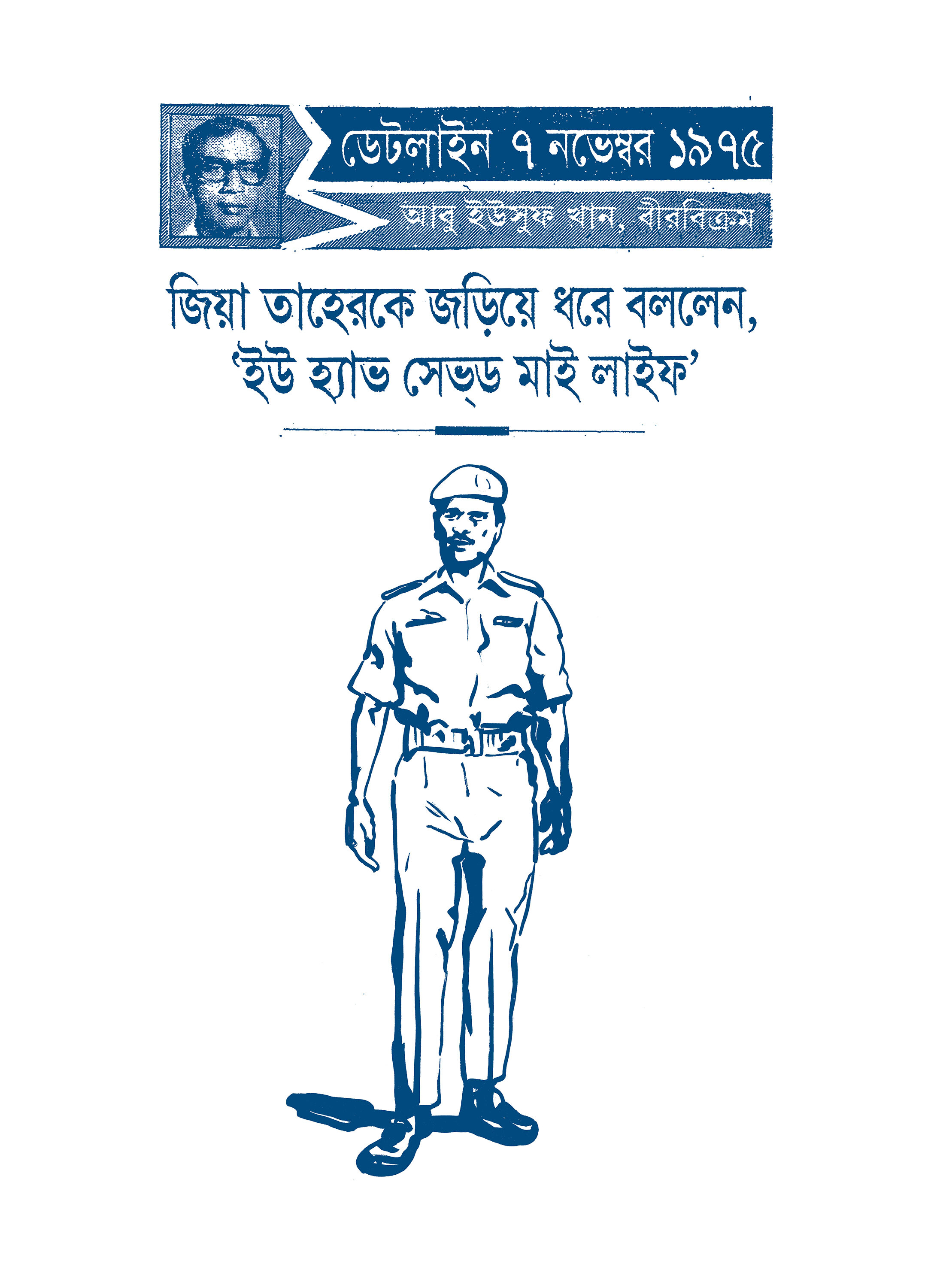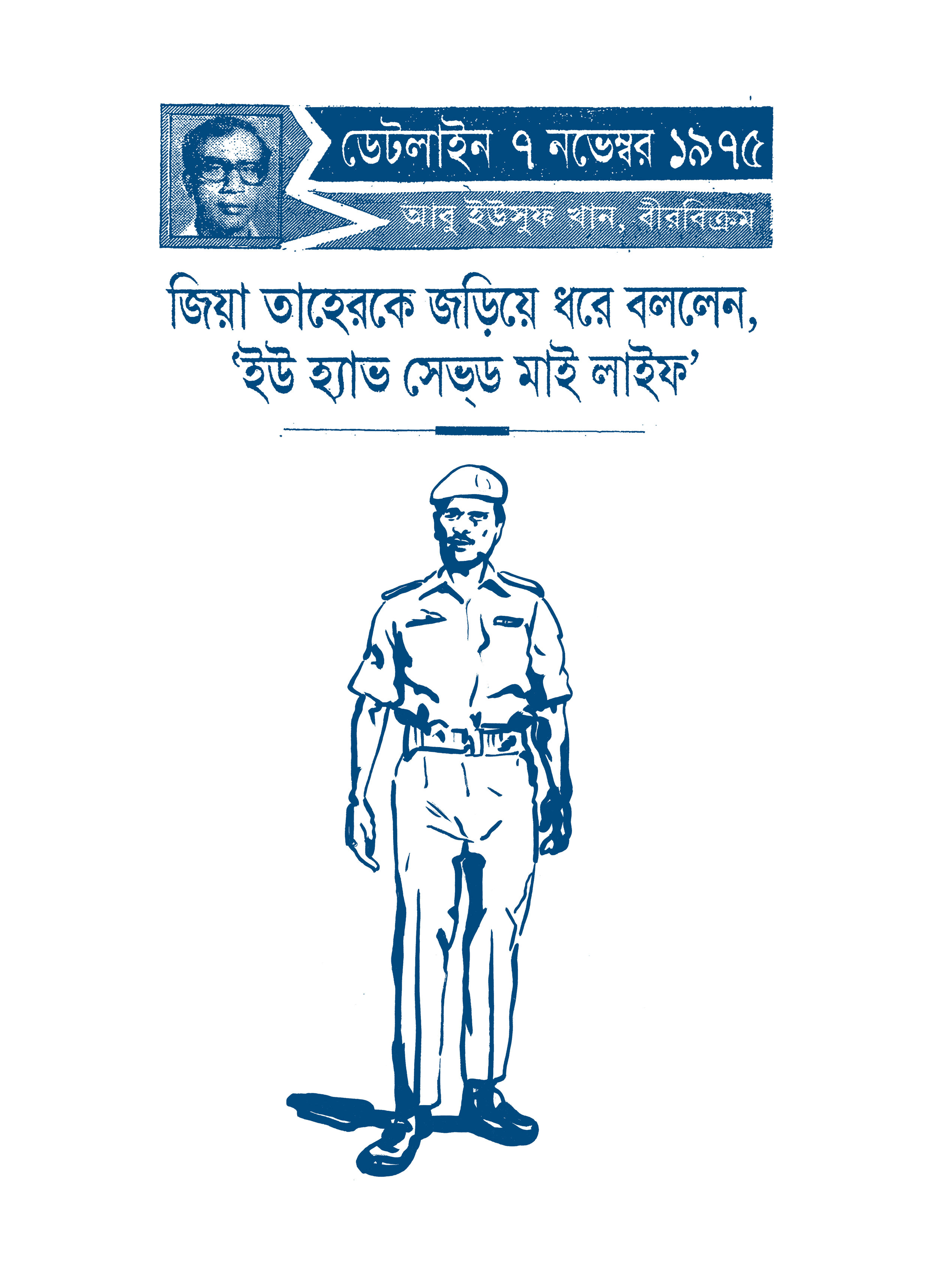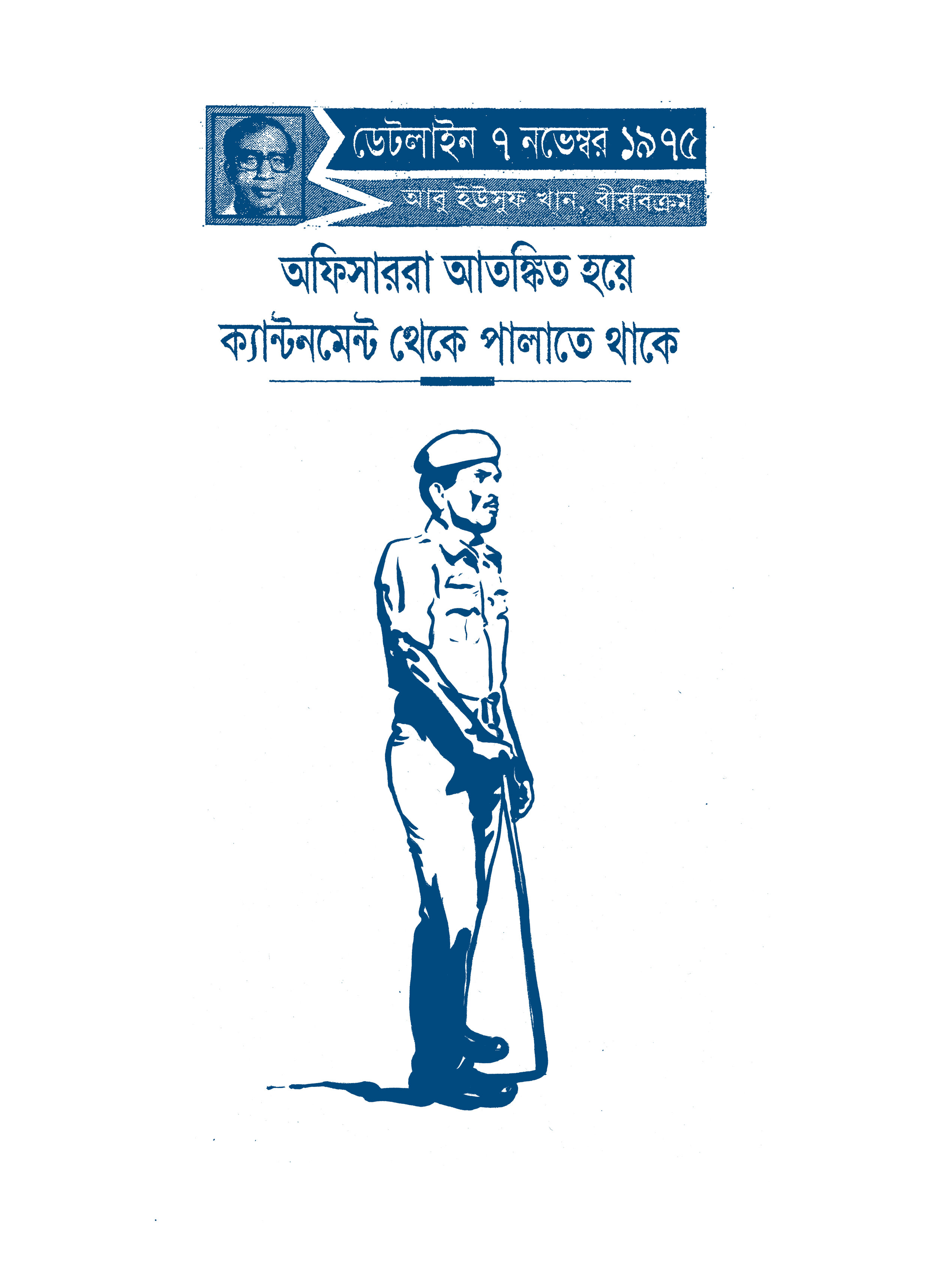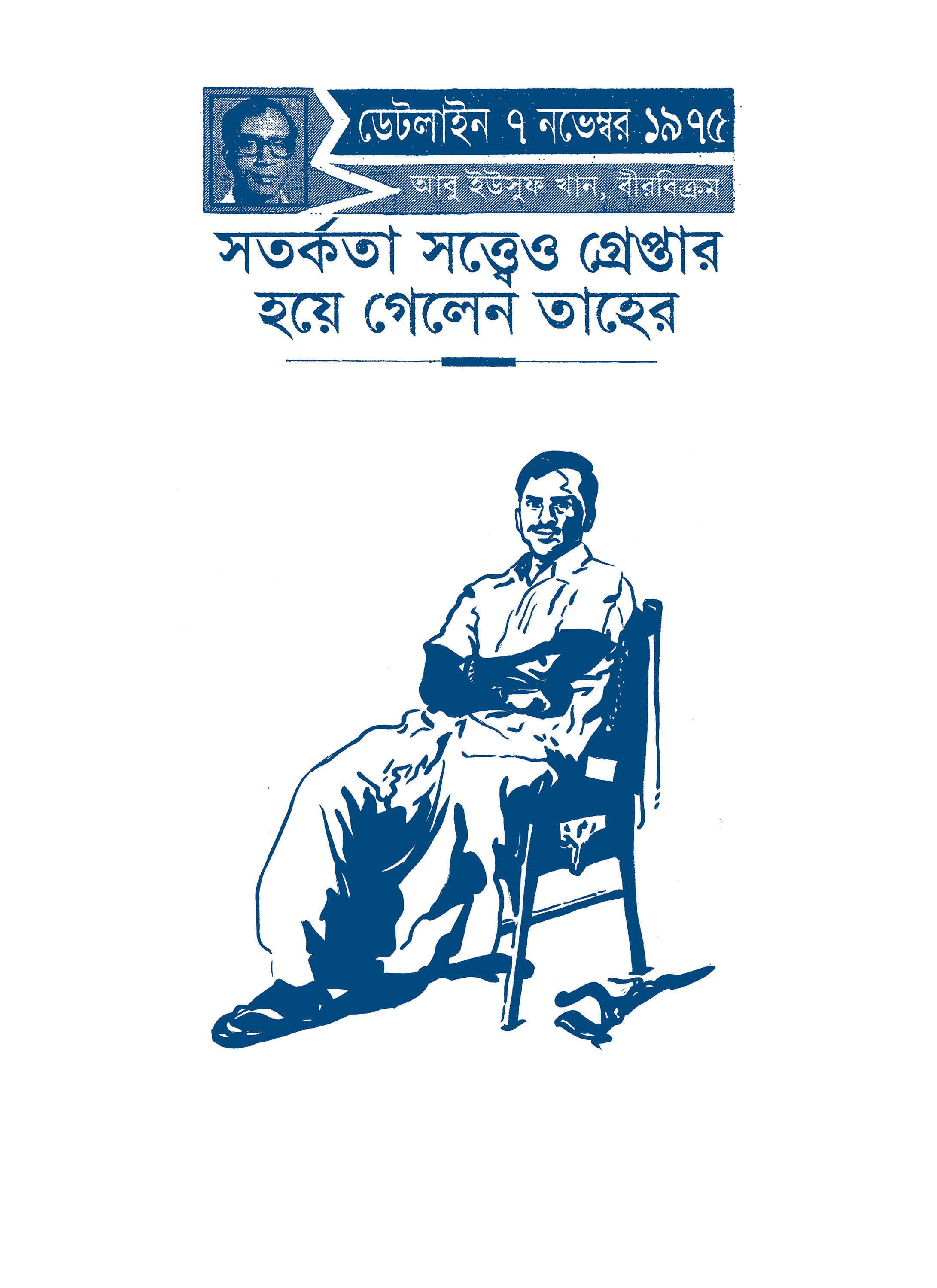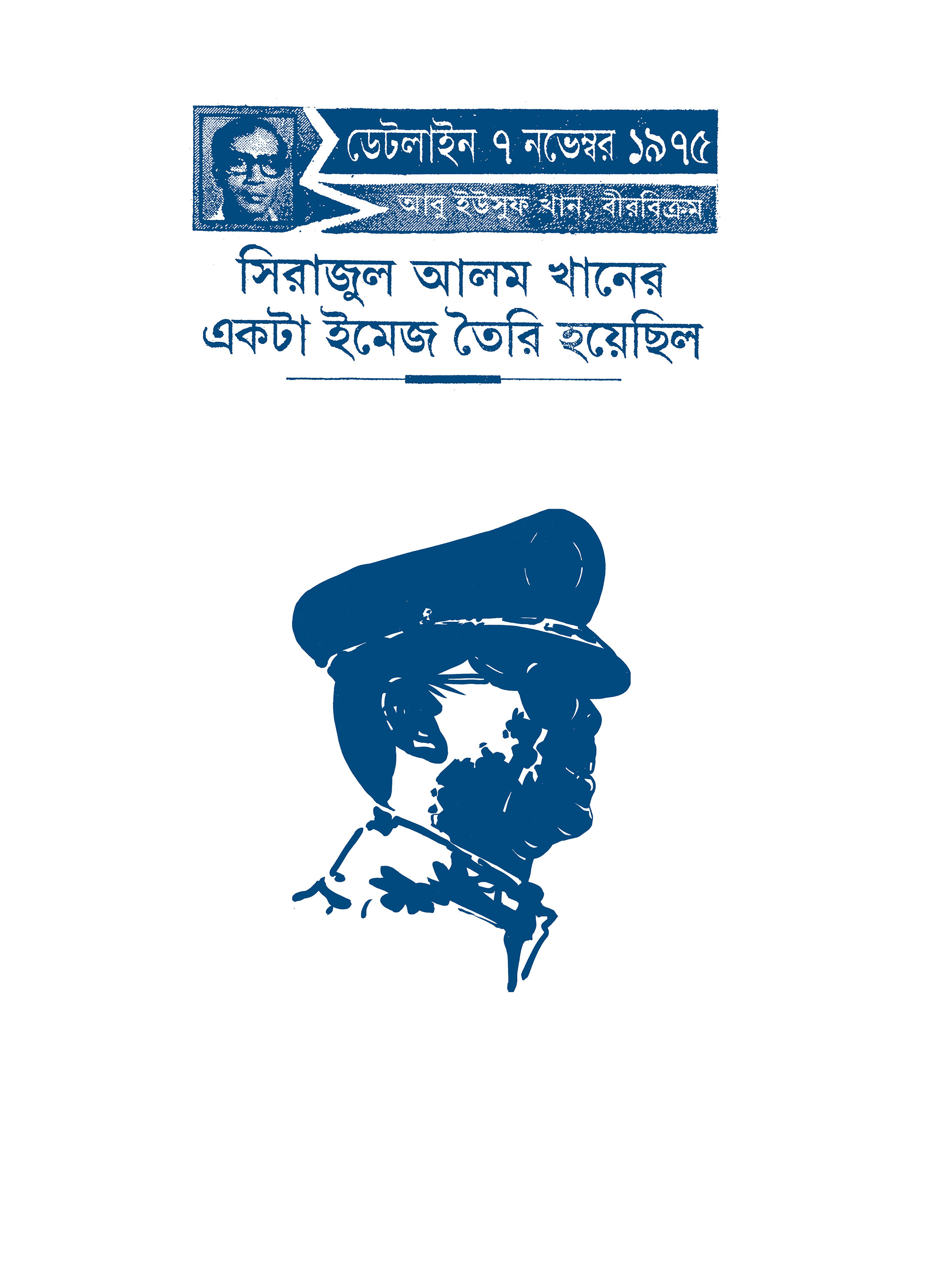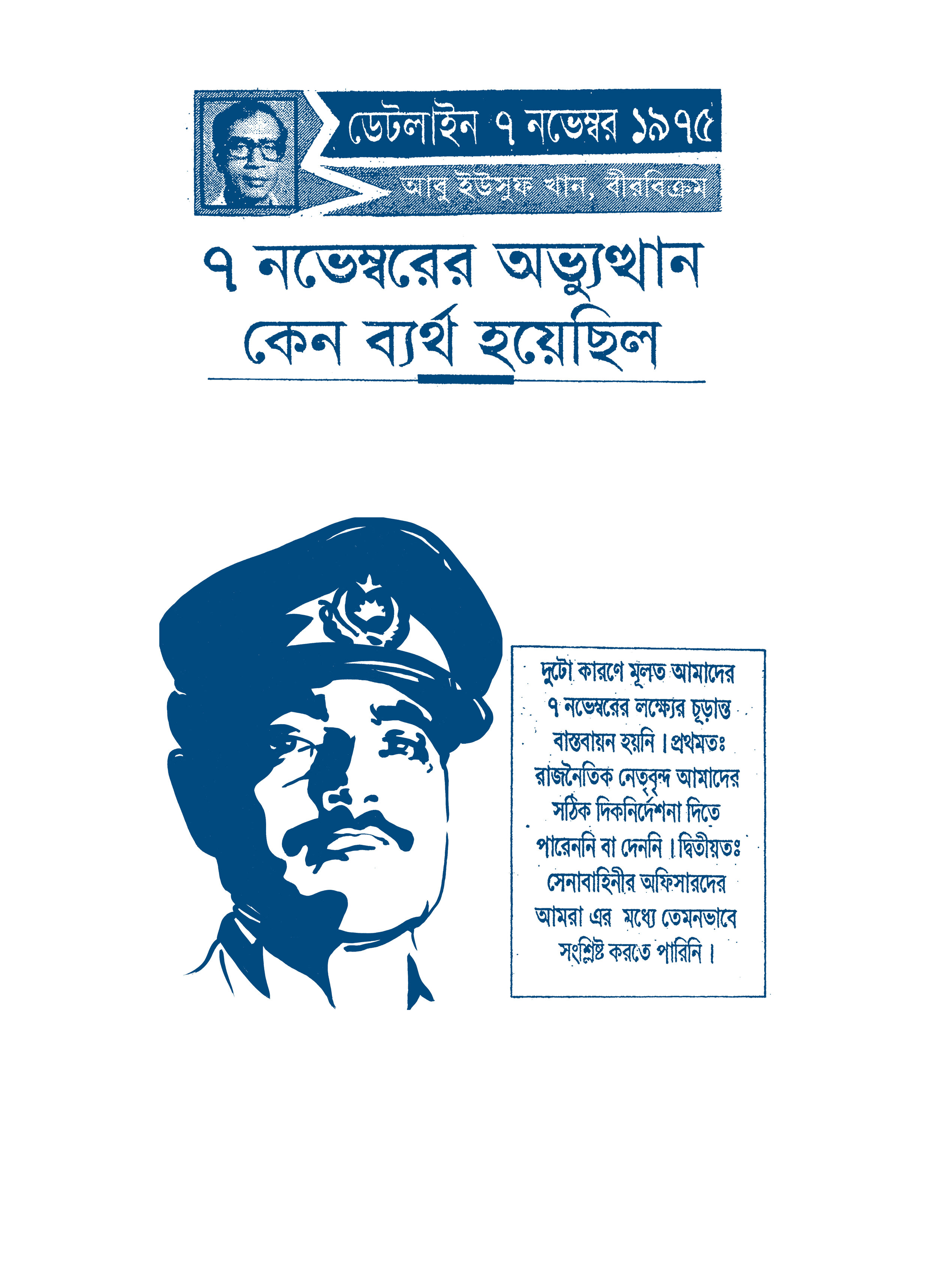LAST MAN IN DHAKA CENTRAL [2015]
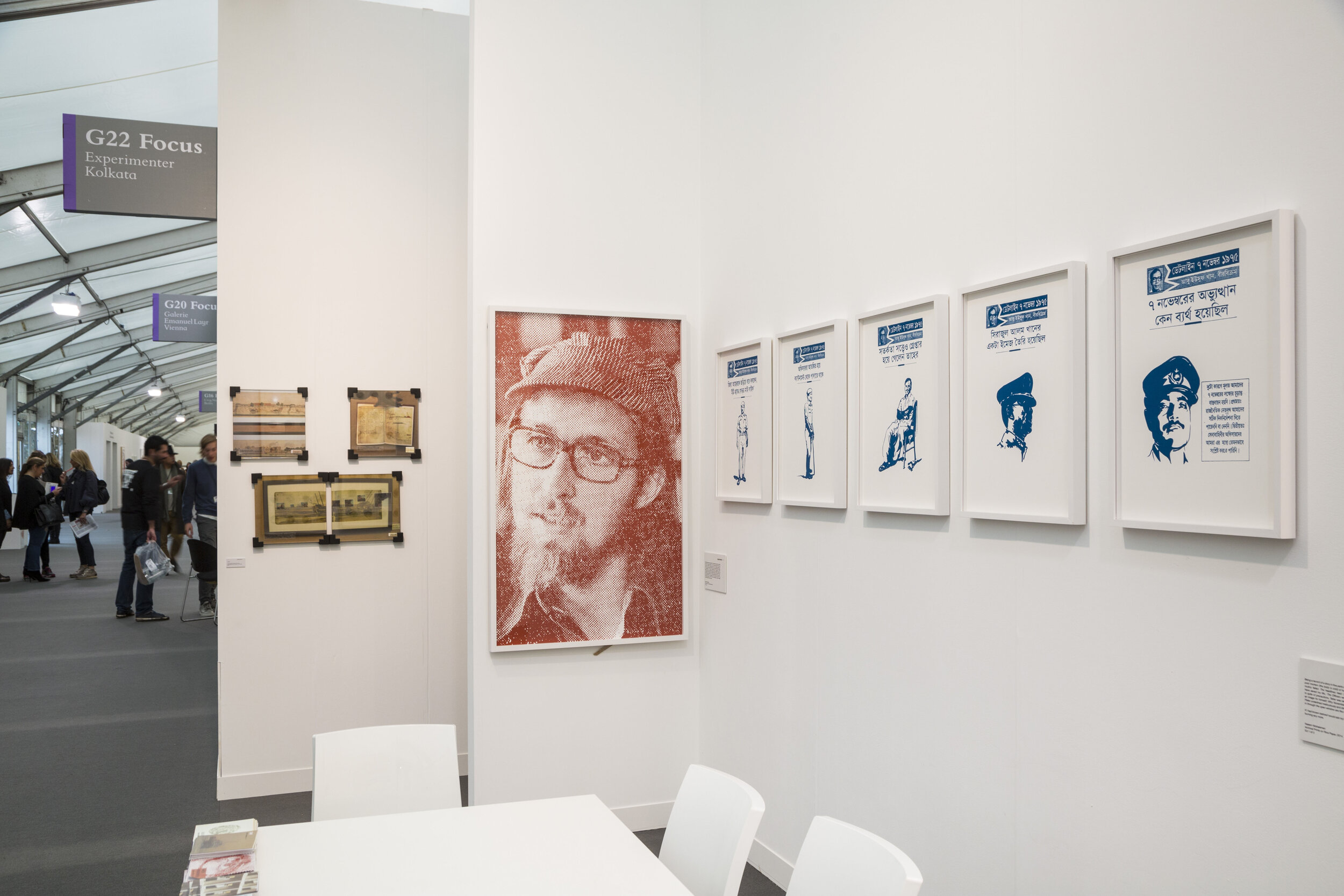
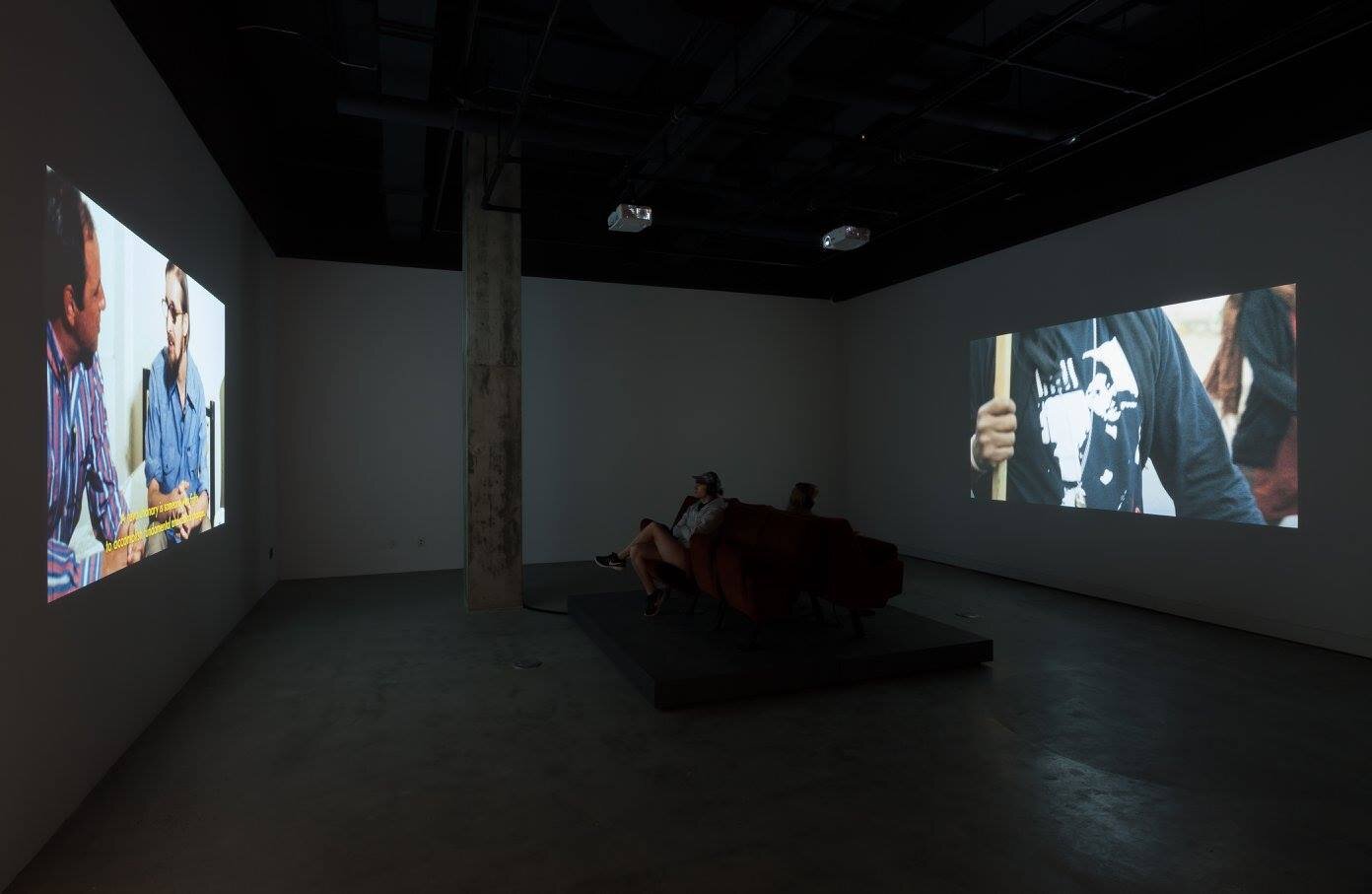
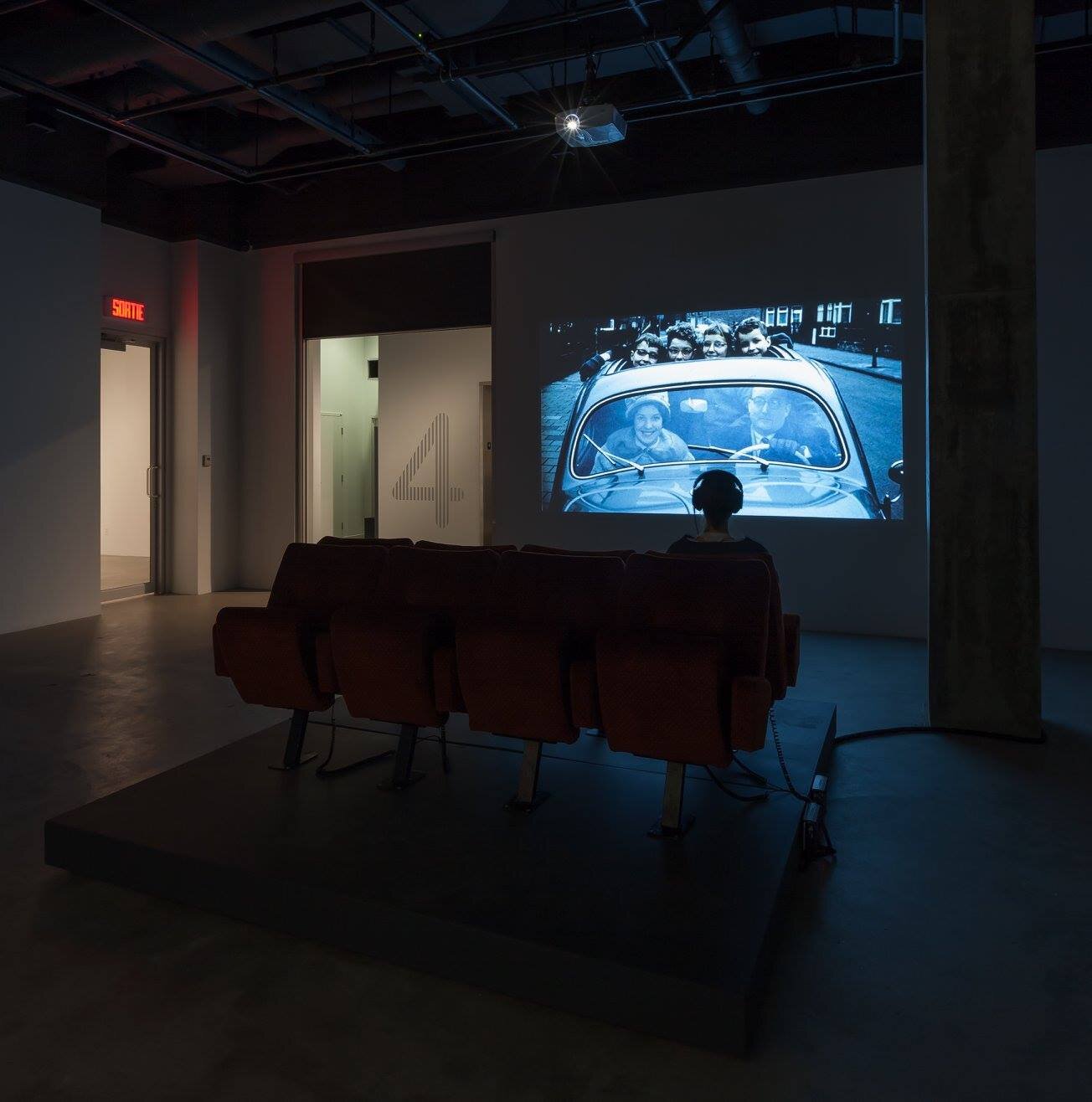
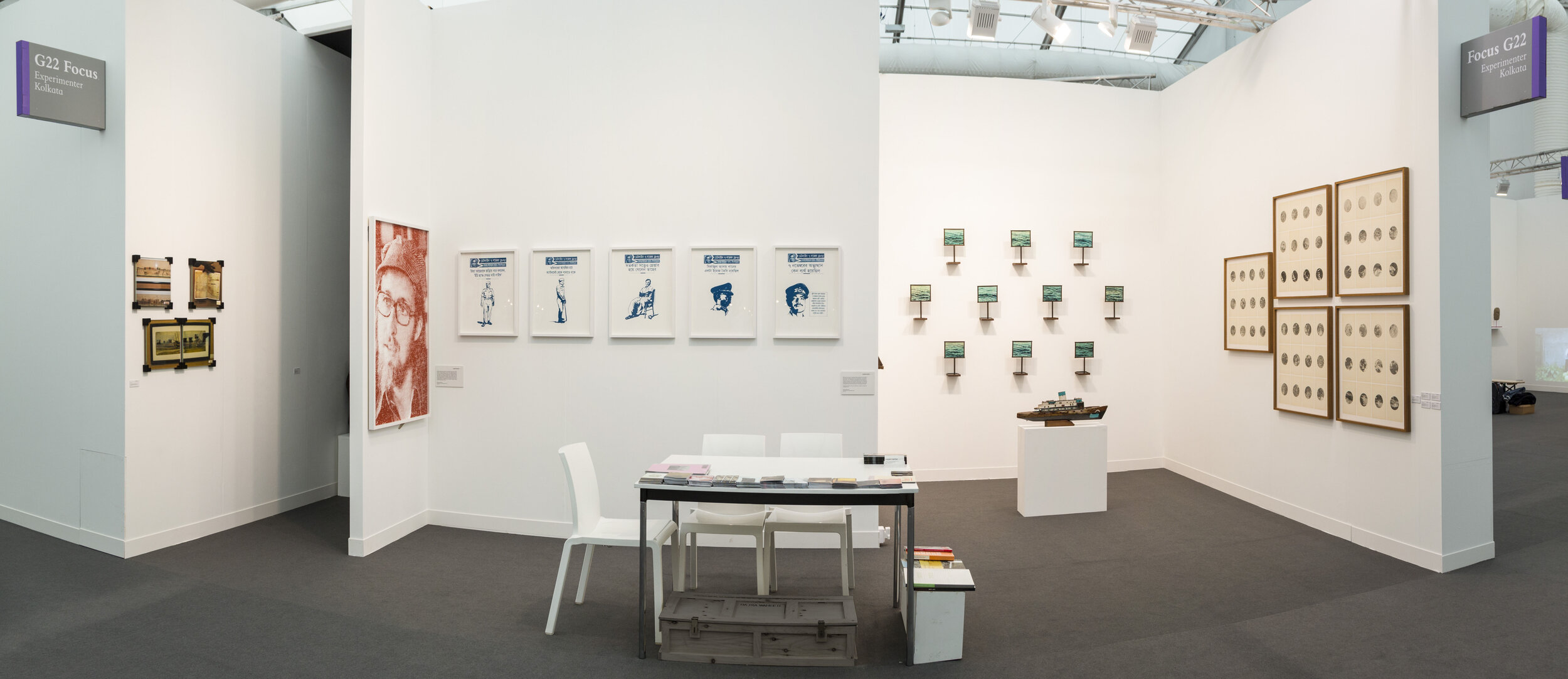
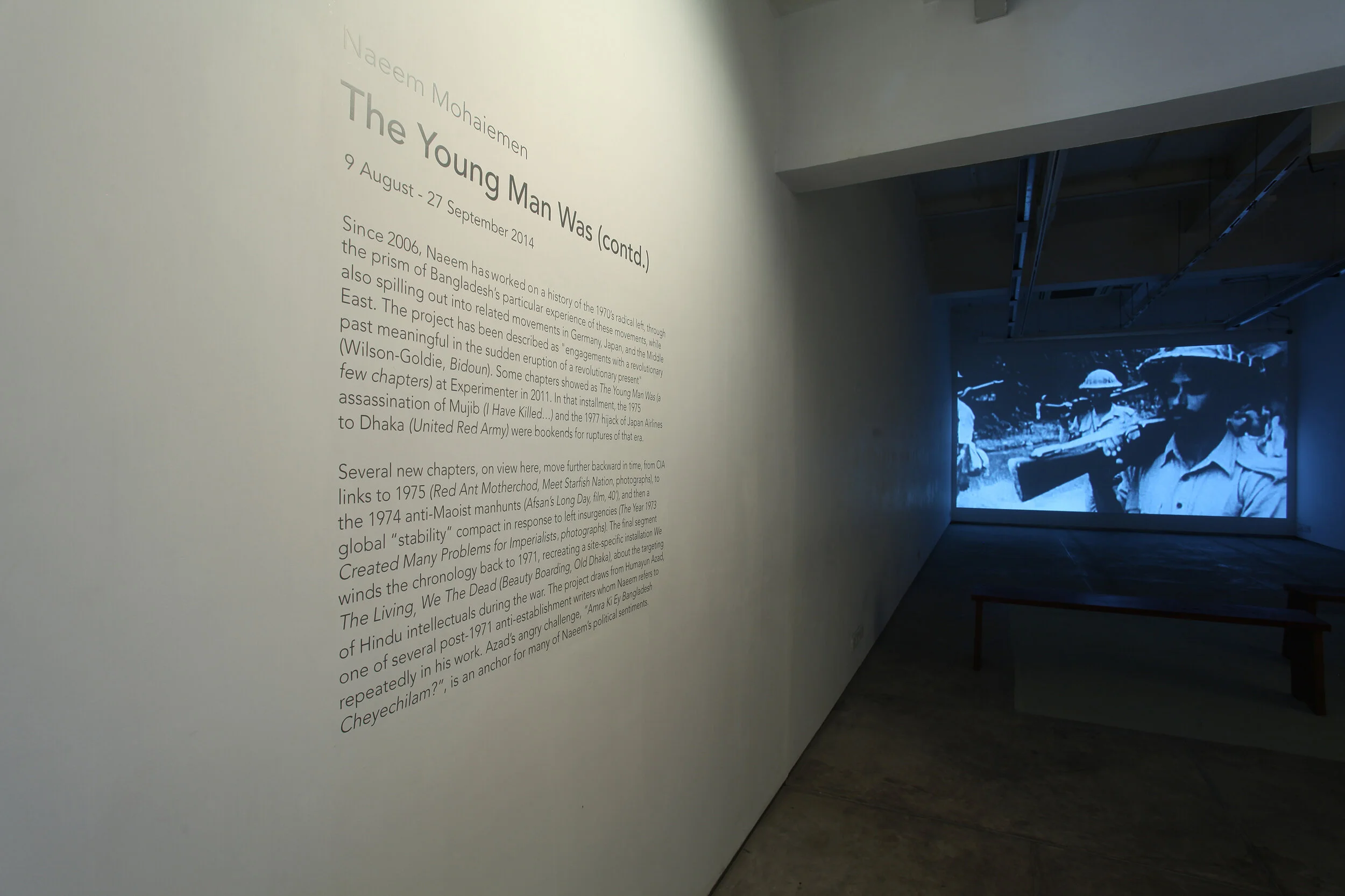
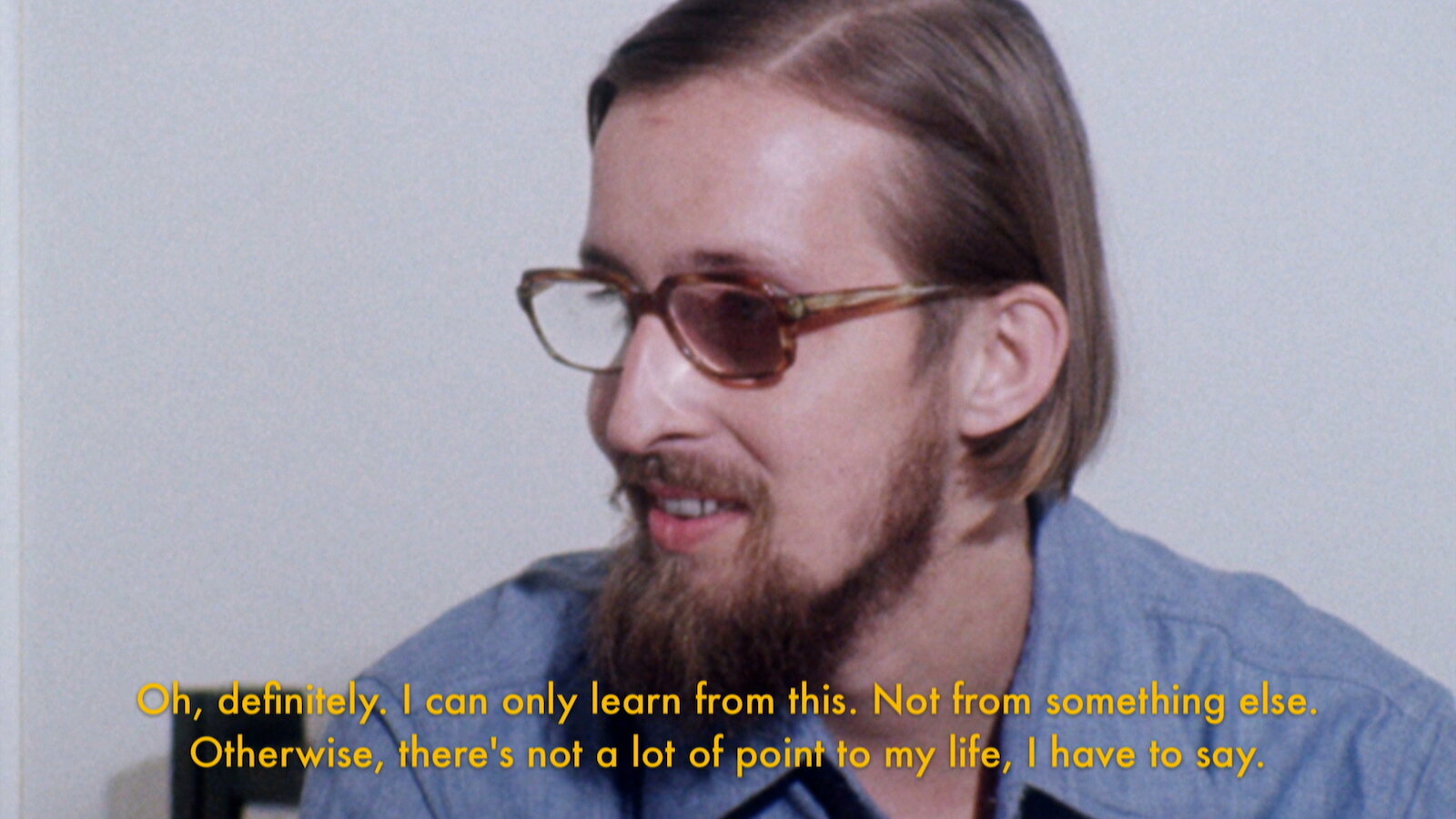
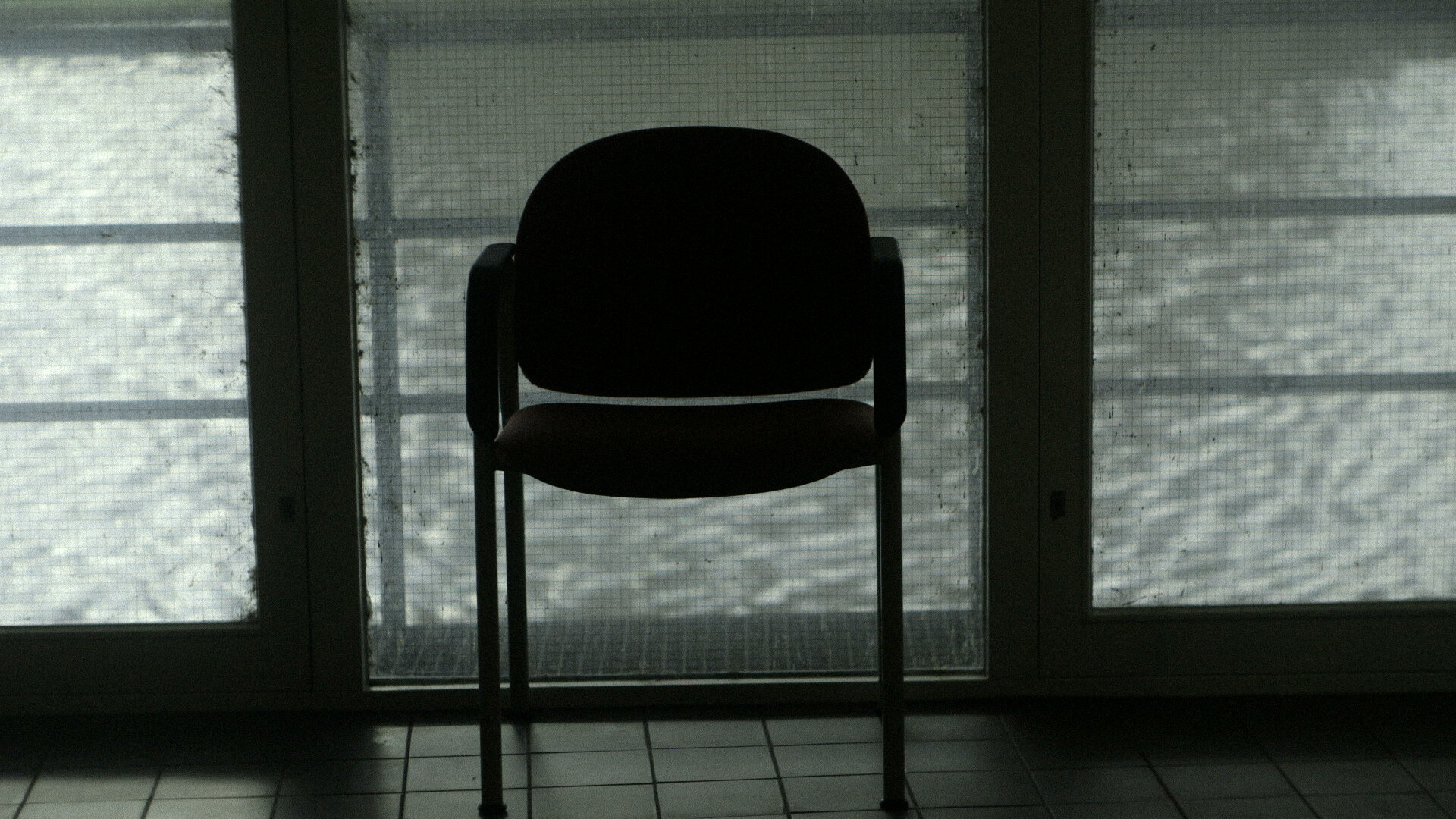
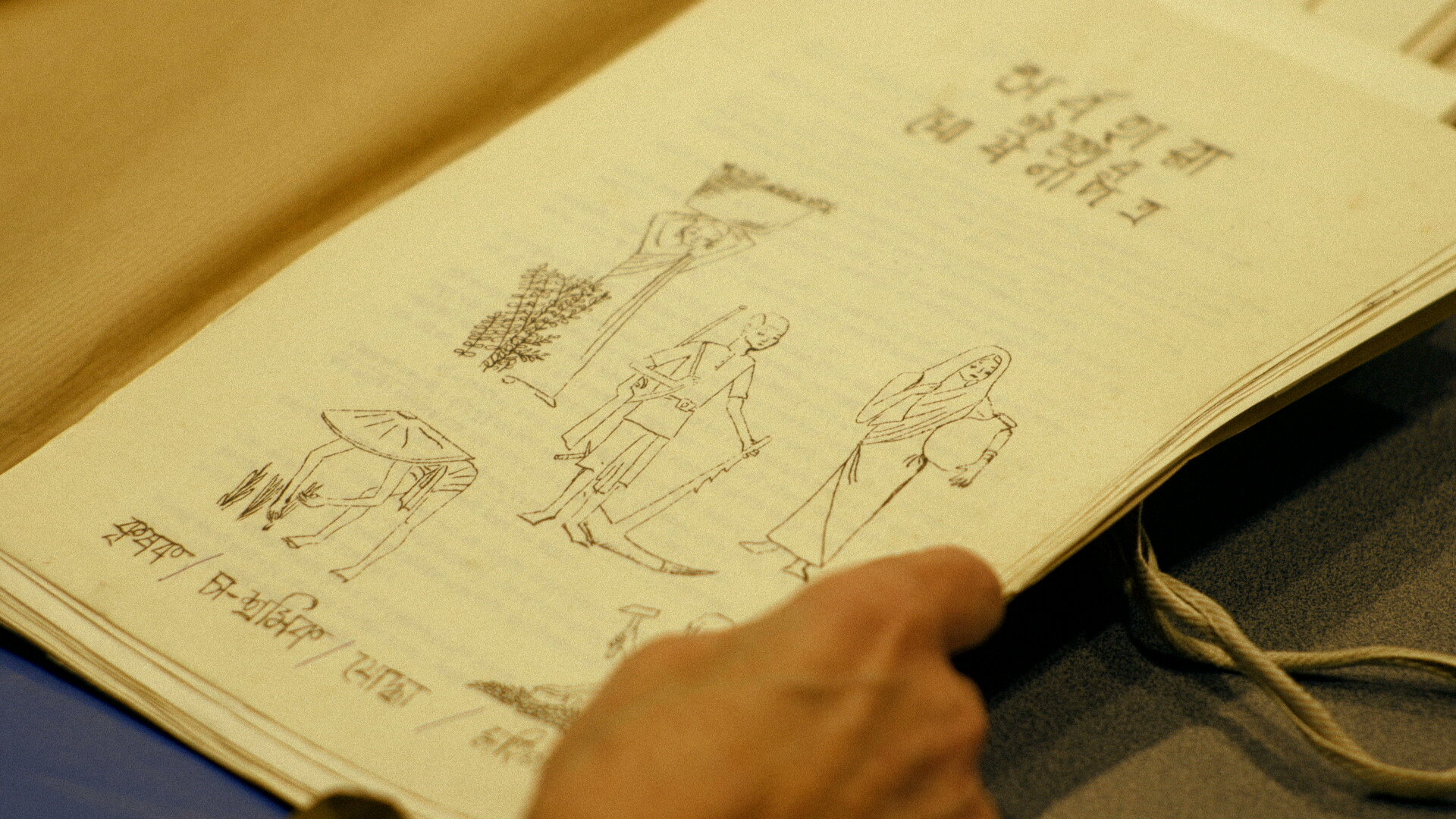

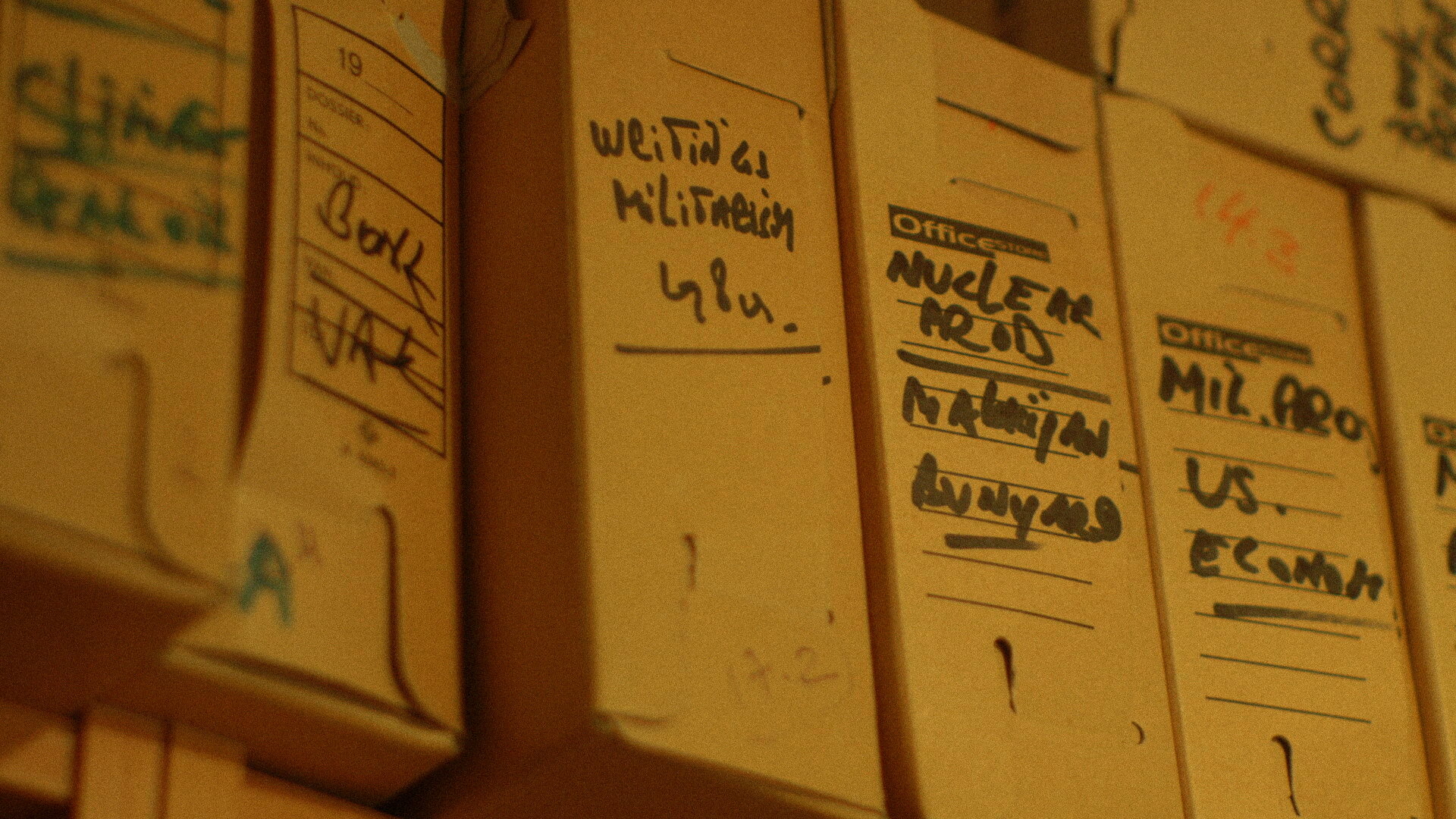
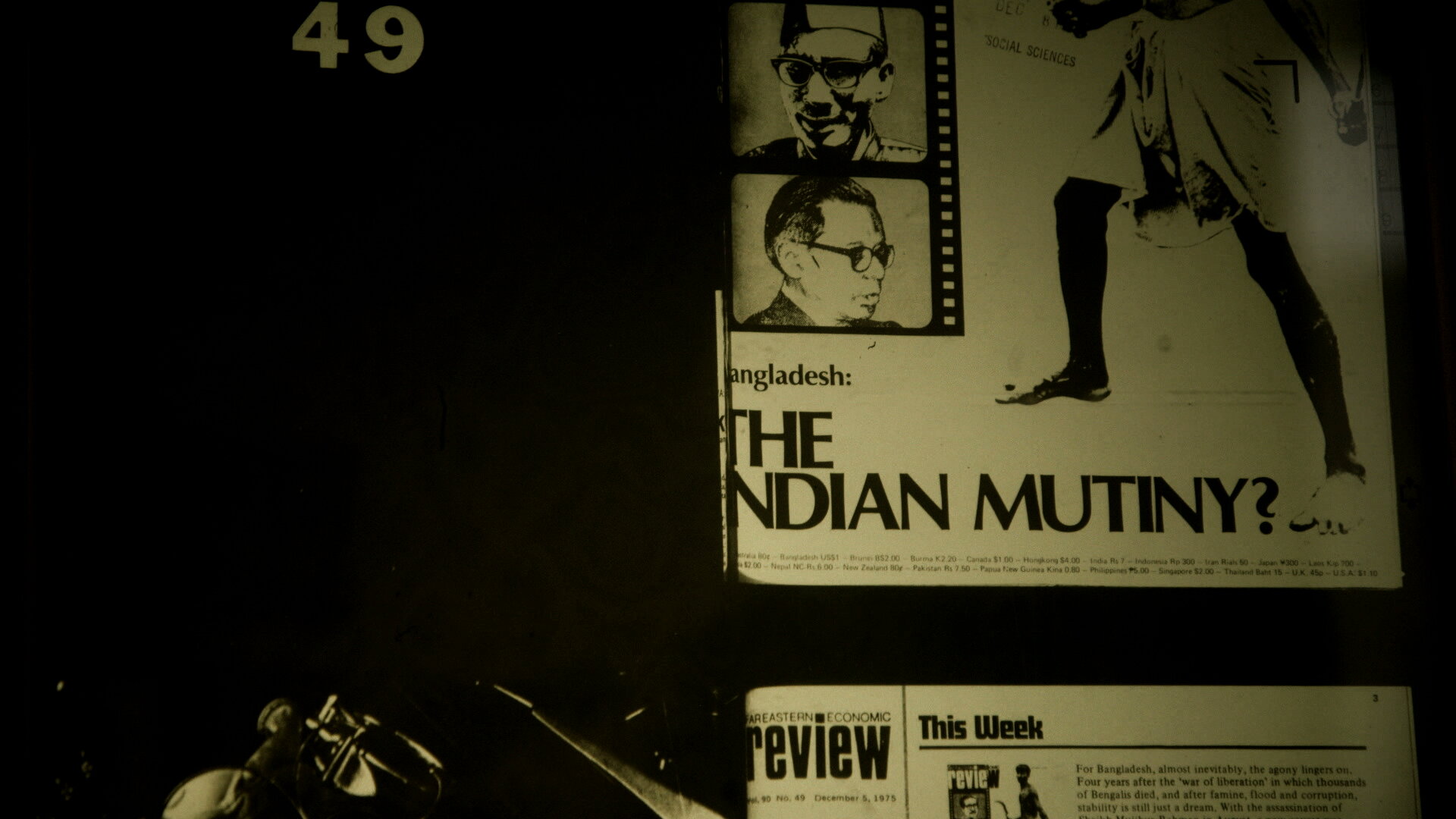
When he talks about pausing his Ph.D. fieldwork to become the unofficial archivist of the group, there is a cut in the interview.
After a break of a few minutes, he resumes.
Perhaps that was our one mistake: producing so many copies.
I’m thinking of something else. I’m thinking of John Reed, documentarian of the Russian revolution.
John wrote to Max.
Don’t tell anybody where I am. I’m writing the Russian revolution in a book.
I wish I could have been Max. I might have thought to warn John. You could still turn back, do it all over again.
But we never get the chance really, to do it again.
Last Man in Dhaka Central, Experimenter, Frieze London, Fall 2014. Supported by a Creative Time Global Residency in Netherlands.
At Frieze, a few notes from a possible future film are on display: fragments of a newspaper series investigating the 1975 failed uprising (the 7th November “Sepoy Mutiny” was the third coup of that year), and the Dutch press campaign for his release.
KEY EXHIBITIONS
Cologne, Germany
“PLURIVERSALE VII: Stealing from the West,” Academy of the Arts of the World, Oct 27, 2017
New York, USA
MoMA DocFortnight (New York). February, 2016
Rotterdam, Netherlands
In competition, IFFR - Rotterdam International Film Festival, 29 Jan-3 Feb, 2016
Montreal, Canada
“Naeem Mohaiemen,” solo show, VOX contemporary image, Montreal, 2016
Portugal, Spain
In competition, DocLisboa, 2015
Venice, Italy
“All The World’s Futures,” 56th Venice Biennale, curated by Okwui Enwezor, 2015 (Premiere)
SELECT PRESS EXCERPTS
Ibraaz “But the real weapons in this exhibition are often tucked out of easy reach, with fearless films by Naeem Mohaiemen, Coco Fusco and the Syrian collective Abounaddara consigned to dark corners or the Arsenale’s infamously-overlooked back garden. Some works demand this insulation.” (Kate Sutton, “All The World’s Futures,” A Review of the 56th Venice Biennale, 2015)
Brooklyn Magazine “Naeem Mohaiemen’s Last Man in Dhaka Central, the third film in his The Young Man Was series, continues his studies of 1970s revolutionary Leftist political movements and challenges facing them; this third part interweaves firsthand and archival interviews with recently deceased Dutch thinker and activist Peter Custers.” (Aaron Cutler, “Doc Fortnight: The Filmmakers Speak,” 2016)
